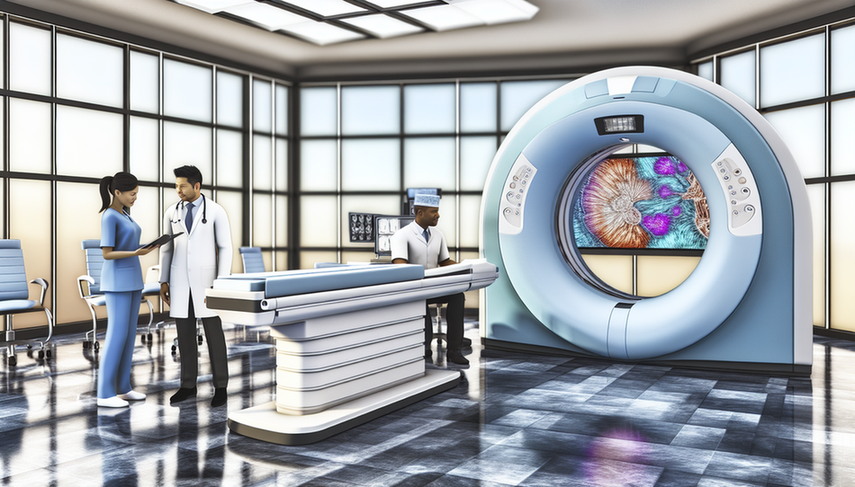Advancements in Nuclear Medicine: Enhancing PET-CT and Functional Imaging with Machine Learning

Nuclear medicine has undergone a significant transformation with the integration of artificial intelligence (AI), particularly in the realm of functional imaging and PET-CT. These advanced technologies are redefining the diagnosis and treatment of various pathologies, offering unprecedented precision and personalization in medical care. AI not only enhances image quality but also optimizes interpretation and data analysis, enabling advanced diagnosis and more accurate outcomes.
Advancements in PET-CT and Functional Imaging
The use of AI in functional imaging has allowed for overcoming technical challenges and improving diagnostic accuracy. In the context of PET-CT, AI has been utilized to enhance image reconstruction and quality, resulting in faster image acquisition with reduced or even negligible radiation doses. This is particularly relevant in oncology, where early detection and monitoring of tumors are critical for treatment success. A recent study highlights how AI can improve treatment response evaluation in cancer patients, utilizing advanced image processing and machine learning techniques [1].
Moreover, AI has proven effective in the integration of multiparametric data from in vivo imaging, providing valuable insights into tumor pathophysiology, receptor expression, metabolism, and morphological and functional characteristics [2]. This not only enhances diagnostic accuracy but also allows for better personalization of treatments, aligning with the principles of personalized medicine.
The deep learning-based synthesis of medical images is another significant advancement, enabling the estimation of images from a desired modality based on a given source, such as CT, MRI, or PET. This facilitates a more precise and efficient clinical workflow, overcoming the limitations of acquiring multiple imaging modalities [3].
Conclusions
The integration of AI in nuclear medicine is revolutionizing the field of PET-CT and functional imaging. Advances in machine learning in nuclear medicine are leading to significant improvements in image quality, diagnostic accuracy, and treatment personalization. As these technologies continue to evolve, it is essential for healthcare professionals to stay informed and trained to maximize the benefits of these innovative tools, thereby ensuring high-quality, patient-centered medical care.
Referencias
- [1] Artificial Intelligence for Response Evaluation With PET/CT
- [2] Advances in PET imaging of cancer
- [3] Deep learning based synthesis of MRI, CT and PET: Review and analysis
Created 20/1/2025
